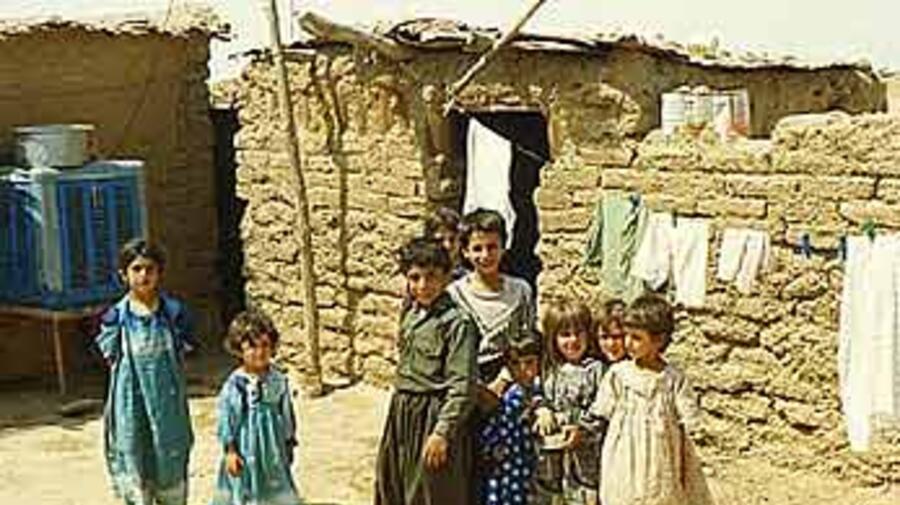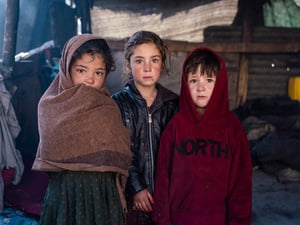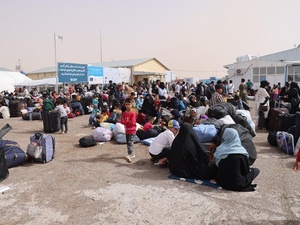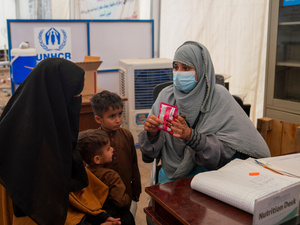First Iranian refugees in Iraq go home under UNHCR auspices
First Iranian refugees in Iraq go home under UNHCR auspices

These Iranian refugee children in Iraq could start going home soon with UNHCR help.
BAGHDAD, July 16 (UNHCR) - The first group of Iranian refugees in Iraq went home Saturday with UNHCR assistance under a voluntary repatriation programme agreed upon over a year ago by the two governments.
The Iranians had been living in Dujaila and Kumiet refugee settlements in Wasit and Missan governorates in eastern Iraq. The first convoy of four buses carrying 125 refugees, accompanied by five truckloads of personal effects and several private vehicles, spent Friday night in the southern Iraqi city of Basra. On Saturday morning, they proceeded to the Al Shalamshah / Khosravi border crossing. UNHCR staff in Iraq, led by Daniel Bellamy, its Chief of Mission in Baghdad, accompanied them up to the border.
"The operations went very well," said Bellamy, who said UNHCR had "excellent" co-operation from the Iraqi authorities.
"In the past there were some repatriation movements assisted by UNHCR, but this was the first movement of Iranian refugees following the March 2001 bilateral agreement," he noted, adding that the agency's staff provided each of the returning refugees with a $30 cash grant and blankets.
Once inside Iran, the returnees were met by officials of Iran's Bureau for Alien and Foreign Immigrant Affairs (BAFIA) and transported to a nearby transit camp. Those who do not have an immediate destination are permitted to stay at the camp until they identify a more permanent destination. As BAFIA has not requested material assistance from UNHCR for the new programme, the refugee agency's involvement in Iran may be limited to helping extremely vulnerable cases.
A second convoy is expected on July 22, with 135 persons already registered to return. Some 8,000 Iranian refugees in Iraq have applied to go home under this voluntary programme. The Iranian government has approved 480 families for repatriation so far.
Returnees are allowed to take up to $1,000 out of Iraq with them. Iranian authorities say they will recognise any educational qualifications the returnees received in Iraq, as well as Iraqi birth and marriage certificates. Exit fees for foreign nationals will be waived in the case of Iraqi women married to Iranian men, though it is as yet unclear if the reverse is true.
The Iranian government has not announced an official amnesty for the Iraq caseload, but it has verbally assured both the returnees and UNHCR that, except for breaches of the common law, no legal action will be taken against any returnees.
About 23,000 Iranian refugees have been in Iraq since the 1980-1988 Iran/Iraq war. An estimated 16,000 are ethnic Kurds living either in the Al-Tash refugee camp or close to the northern Iraqi city of Erbil. A further 7,000 Iranian Arabs live in well-equipped camps in southern Iraq.
Voluntary repatriation from Iran to Iraq has been going on for several years now. A total of 27,259 Iraqi Arabs returned to Iraq from Iran between 1994 and the end of June 2002. Another 16,855 Iraqi Kurds returned between 1999 and the end of June. Iranian authorities say there are approximately 220,000 Iraqis in Iran.






